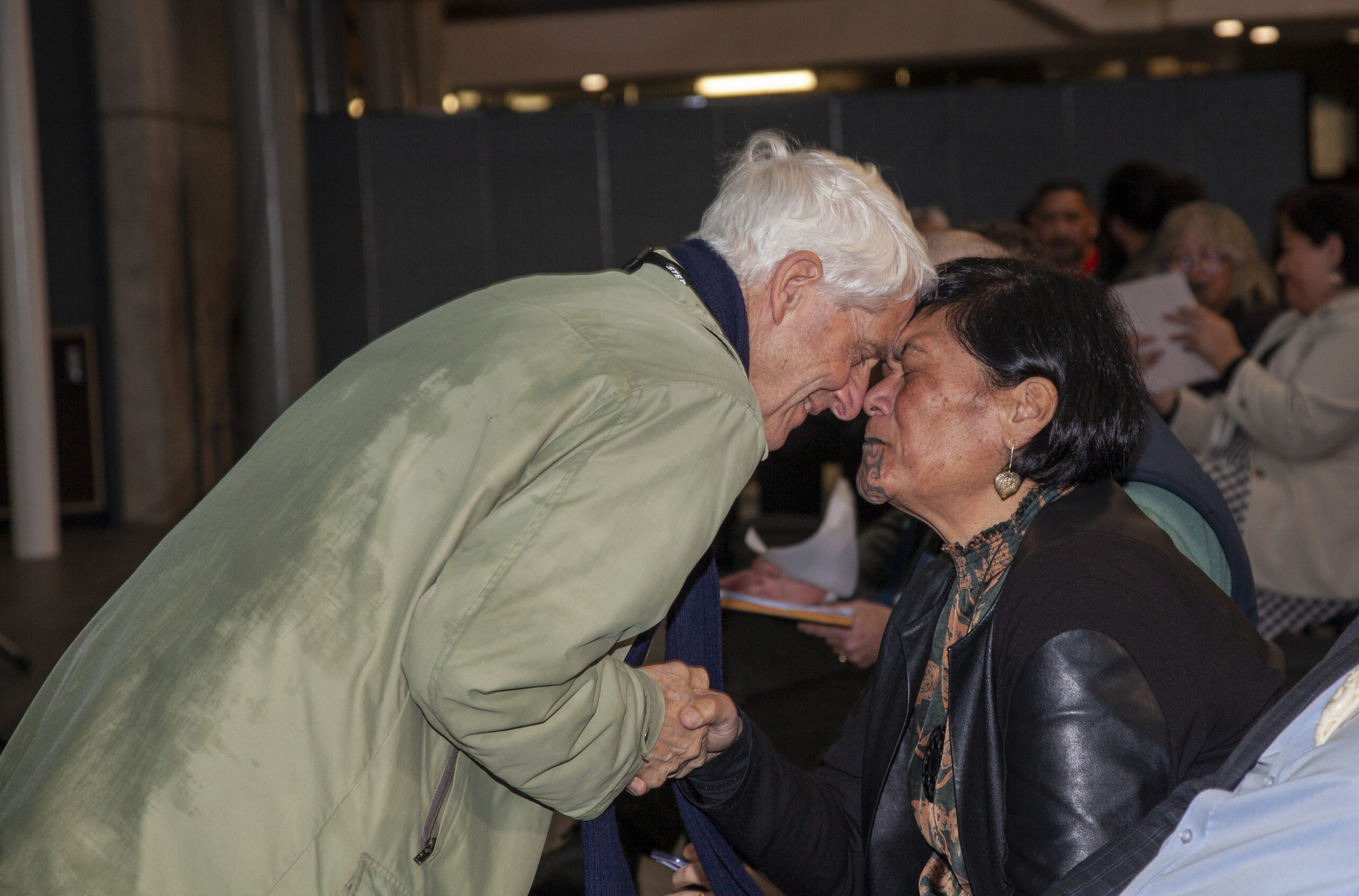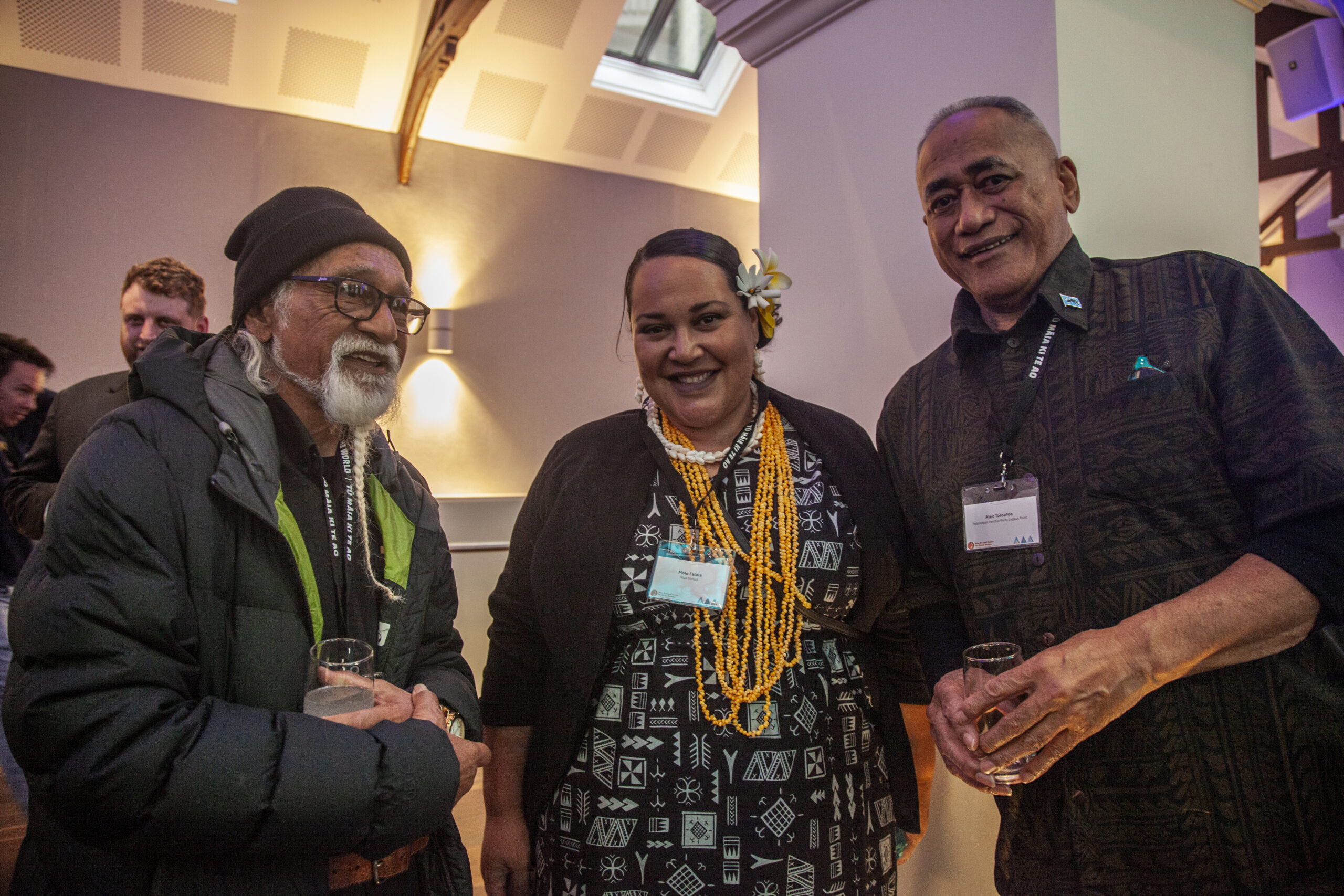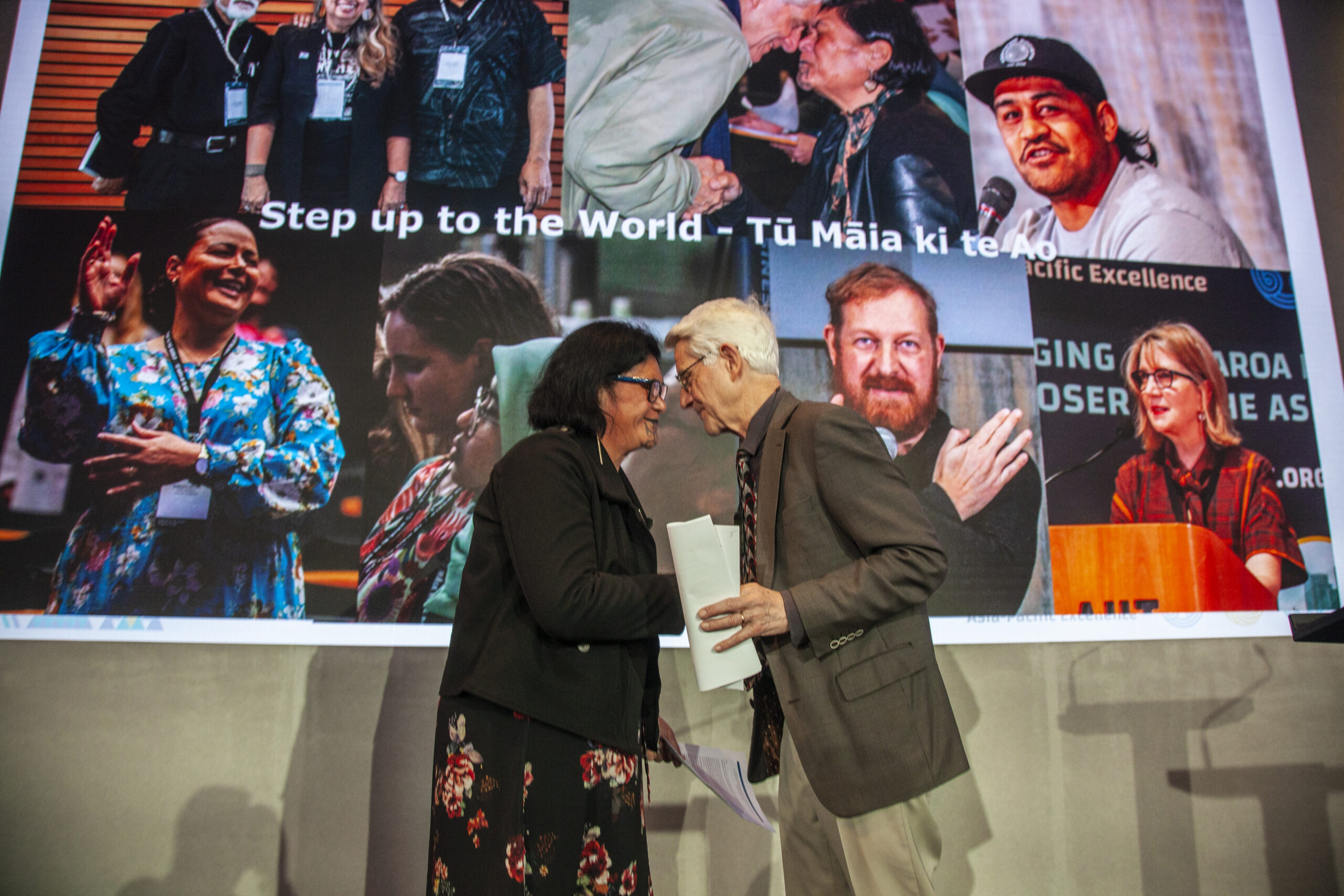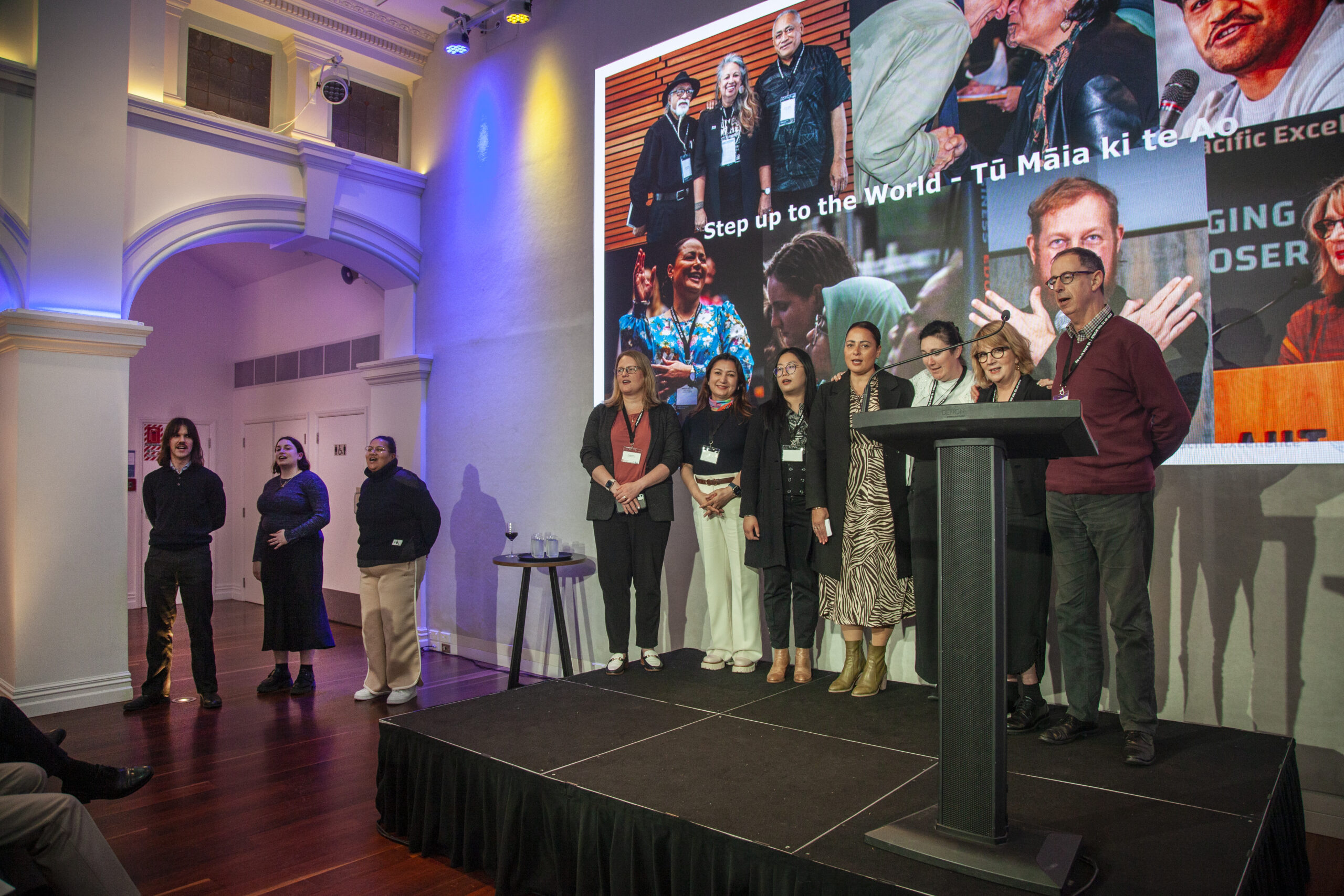
We have entered an era of human crisis. What we think and do in the future will inevitably build on, but cannot be confined to, the past.
The Centre’s Trust Deed (2012) requires it to “encourage and facilitate informed interdisciplinary research into global affairs in the 21st c. CE”. As part of this, the Centre is to “review the history of human ideas, including the various philosophical streams of thought, whose contemporary expressions may strengthen global cooperation and unity.”
Easier said than done – but the aspiration is to clarify our future thinking, for thinking about the future. After all, in the present historical moment we seem to have lost the plot.
Earlier columns by others are directly relevant to such an aspiration: ‘Keeping a parliamentary eye on the future’; The global university of the future; The new [digital] omnipotence; Earth Trusteeship; Responsibility to Protect. But I get ahead of myself.
To commence with the ultimate challenge – is it possible, feasible and credible to strive for a single, over-arching, coherent, political-legal ‘theory of everything’ that can help in the creation of a global unity that guides us through this century’s crises?
It depends.
It depends on our ability as a human group to self-identify, attain a working consensus on how we think – what is important, what is ‘true’, what is emotionally binding as a collective source of global legitimacy.
This is not the moment to dive below sensible depth in philosophy and epistemology. But it does prompt us to have regard to paradigmatic evolution in our knowledge – whether there is irreconcilable difference, or potential cross-over, between the various categories of human thought.
To the extent that Sapiens can fathom truth, pure mathematics remains eternally unsullied, the ultimate in deductive reasoning – setting aside for the moment the debate over its relationship to human consciousness. But the applied sciences, dependent as they are on the maths, are a step down because they are dependent also on the human faculty for inductive perception and understanding of reality.
The basic categories of knowledge are generally divided into the natural and social sciences. They have become separate silos, notwithstanding C. P. Snow’s attempt at reconciliation (The Two Cultures and the Scientific Revolution; 1959).
Natural science
Natural science, comprising both physical and life science, proceeds on the basis of objective knowledge resting on the scientific method – formulating a hypothesis, and subjecting it to falsification or proof through measurement and/or observation. Contestation and critical analysis are encouraged. Strictly, scientific ‘truths’ do not exist; they simply have not been proven false, and await further refinement, until a paradigm shift occurs. (The Structure of Scientific Revolutions, Thomas Kuhn; 1962) This is the way we have built up our scientific knowledge of the world around us and the nature of reality beyond, through paradigmatic change – ‘standing on the shoulders of giants’, to quote one of them.
Physical science
Consider the main branches of physical science – astronomy, physics, chemistry and Earth science. Each has experienced revolutionary paradigmatic change, fundamentally influencing the other. A few examples will suffice.
- Cosmology has developed from a static, single-galaxy, geocentric universe to a heliocentric universe to a dynamic, multi-galaxy, a-centric universe (some 2 trillion galaxies within our observable horizon). We have ‘knowledge’ of its age (13.8 b. years), its origin (Big Bang), its evolution (inflation, consolidation and expansion), its size (92 b. light-years in diameter) and its composition (microwave uniformity). These aspects of knowledge began as theories, subsequently proven through observation and measurement. Yet the shape of the universe – open, flat or closed depending on the Omega density factor – remains in the realm of theory. One day it will probably be established, as our technology continues to improve.
- Astrophysics has proceeded from the classical laws of motion, with gravity as a force, based on absolute time and absolute space, to General Relativity based on absolute space-time, with gravity as a field. Again, theory subsequently proven through observation and measurement.
- Particle physics, focusing on baryonic matter and force carriers, has developed from the theory of basic elements (earth, water, air, fire) to atoms to particles of quantum length and scale. Once more, theory subsequently proven – taunting human intuition yet trumping it through daily use of the GPS and computers.
This is where human knowledge currently stops. Incompatibilities exist in the inter-relationship between these branches of science – between the power of prediction at macro-level, and wave-particle duality with the uncertainty principle at micro-level. Gravity and the electromagnetic-weak force are unreconciled in the contemporary Lambda-CDM model of physics.
There is increasing confidence, following recent discoveries of the Higgs field and gravitational waves, that quantum gravity, including string theory and the multiverse, may be the next revolution in our understanding of reality. It has generated a renewed quest for a Theory of Everything that reconciles the apparent incompatibilities while also explaining dark matter and dark energy. But this remains hypothetical; and not only does it stop short of scientific proof, it exceeds our current technological ability to provide it.
Life science
Paradigmatic change of equal enormity is found in the theory of evolution (On the Origin of Species; 1859), combining naturalist insights from geology, bio-geography and natural selection drawn from botanical and animal observation.
These astonishing achievements of the human intellect over five millennia are, to put it mildly, humbling. But what does it mean, if anything, for the rest of human knowledge? Might it have potential for the social sciences? What might it mean for global studies? Because we seem to know a lot yet continue to lack wisdom.
Social science
Social science varies in both breadth and rigour. Some social sciences – anthropology, psychology – are not too distantly related from natural science in their methodology. Most, however, are behavioural studies – education, economics and sociology, to cite just a few.
The study of history, at least in its broadest sweep, lends itself to paradigmatic thought. Harari, for example, has identified four major revolutions which humanity has experienced: cognitive, agricultural, scientific and digital (Sapiens: A brief history of humankind; 2012).
- From the first, we think and speak;
- from the second, we organise and produce;
- from the third, we experiment and exploit; and
- from the fourth, we compute and share.
The digital, he suggests, will prove to be the most far-reaching. But this is historically descriptive; and to the extent he is predictive, it is sobering, to say the least.
This unavoidably leads us into political theory. Most universities are content to teach ‘political science’, a label that is itself controversial – some rather teach ‘political studies’. International relations (IR) and global studies (GS) are often seen as sub-sets of political science but in fact are different disciplines – different from the others; and different from each other. Both study the behaviour of nation-states, but they differ in scope and method.
- The central focus of IR is the international community of states; its method uses mid-20th political-legal thought on which it rests. The main IR theories (realism, liberalism, constructivism, functionalism, post-structuralism) envisage linear change.
- The central focus of GS is the global community of peoples: its method focuses on 21st global problems and solutions. The main GS theories (economic globalisation, cultural cosmopolitanism, legal constitutionalism) presage qualitative change.
Some modern cross-over exists between the natural and social sciences – bio-linguistics, neurobiology, neuro-economics and psycho-biology. It is discernible also in the next imminent scientific-technological leaps – genetic engineering and quantum computing.
But, as a general rule, the social sciences, including IR and GS, differ in method from the natural sciences. While hypothesis and theory search for verification (rather than proof) through observation and measurement, the scope for cognitive bias is evident. And the departing premises of social theory are driven by prescriptive human values, not descriptive scientific facts.
This doesn’t mean that a social ‘theory of everything’ is impossible. But what it does mean is that such a theory, whether partial and specific or total and comprehensive, is potentially biased, to be regarded with due circumspection and caution.
Yet, there is an interesting vignette.
Consilience
The idea of consilience rests on the principle that the convergence of evidence from independent sources strengthens the credibility of a conclusion. Several centuries old, the idea currently attracts renewed attention following E. O. Wilson’s book, Consilience: The Unity of Knowledge (1998).
Wilson contends that all knowledge is intrinsically unified. Behind disciplines as diverse as physics and biology, anthropology and the arts, there exist a few natural laws. Consilience is the interlocking of causal explanation across disciplines through applying epigenetic rules. Wilson criticizes the ‘scholarly habit’ of speaking variously of anthropological explanations, psychological explanations, biological explanations, and other explanations reflecting the perspectives of individual disciplines.
“I have argued that there is intrinsically only one class of explanation. It traverses the scales of space, time, and complexity to unite the disparate facts of the disciplines by consilience, the perception of a seamless web of cause and effect. …. The central idea of the consilience worldview is that all tangible phenomena, from the birth of stars to the workings of social institutions, are based on material processes that are ultimately reducible, however long and tortuous the sequences, to the laws of physics.
The focus of the natural sciences is shifting from the search for new fundamental laws toward a new kind of synthesis for understanding complex systems. That is the goal of studies of the origin of the universe, the history of climate, the functioning of cells, the assembly of ecosystems, and the physical basis of mind.
The answer is clear: synthesis. We are drowning in information while starving for wisdom. The world henceforth will be run by synthesisers, people able to put together the right information at the right time, to think critically about it, and make important choices wisely.
Increasingly through history, nations have come to judge one culture against another by a moral sense of the needs and aspirations of humanity as a whole.
In thus globalising the tribe, they attempt to formulate humankind’s noblest and most enduring goals. The most important questions in this endeavour for the liberal arts are the meaning and purpose of all our idiosyncratic frenetic activity: What are we? Where do we come from? How shall we decide where to go?
… it is too early to speak seriously of ultimate goals …. It is enough to get Homo Sapiens settled down and happy before we wreck the planet. A great deal of serious thinking is needed to navigate the decades immediately ahead. … We have begun to probe the foundations of human nature, revealing what people intrinsically most need, and why. We are entering a new era of existentialism … [in which] only unified learning, universally shared, makes accurate foresight and wise choice possible.
Wilson concludes that, in due course, not only will the natural sciences rest on a unity of knowledge, but all human knowledge, across the physical and social sciences, and even the humanities, will do so as well.
A united system of knowledge is the surest means of identifying the still unexplored domains of reality. It provides a clear map of what is known, and it frames the most productive questions for future inquiry. Historians of science often observe that asking the right question is more important than producing the right answer. The right answer to a trivial question is also trivial, but the right question, even when insoluble in exact form, is a guide to major discovery.
A trans-disciplinary theory of global studies
What are we to conclude from all this? We should not pretend that the unity of all knowledge is upon us, or about to come – a whole new take on ‘believing through faith’. Nor should we aspire to a spontaneous ‘theory of everything’ in global studies, at least in the foreseeable future. But we can, and undoubtedly we should, be working actively and creatively for a theory of global studies that presumes, and answers to, the emerging global community – with all its stresses and failings.
Such a ‘theory of global community’ should, to the extent our current knowledge and passing insight enables us to do so, draw equally from all disciplines, without pretension but without hesitation, thereby crafting a belief system that loosely unites humanity in a 21st c. framework, transforming its 20th century predecessor.
Part II will explore how global studies might be a synthesiser of existing knowledge, based on certain components, and asking the right questions.
Dr Graham is Director of the NZ Centre for Global Studies







0 Comments